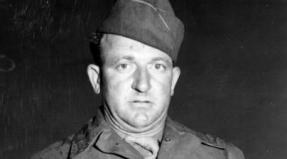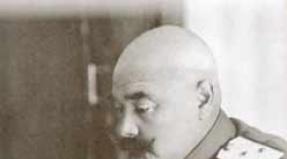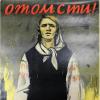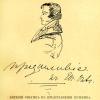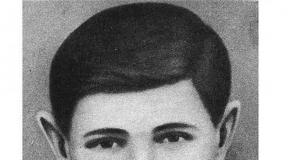When the Nuremberg process took place. Problems with testimonies. Charter of the Military Tribunal in Nuremberg: the history of compilation
The content of the article
Processes over war criminals (1945 –1948
)
. Processes over German and Japanese military criminals after the Second World War introduced a number of new definitions, principles and procedures into international law. They determined the concept of an international crime to be punished by the International Tribunal. These were the first trials in the history when individual citizens, which are governmental functionaries or acting on behalf of their state, were committed to the court and are found guilty of international crimes, including those responsible for the disconnection and maintenance of the war.
Until World War II, the concept of "military crime" had a limited meaning. Such a crime was considered violation of laws and customs of war defined by various conventions and agreements that were adopted at international forums. The main participating countries of the Antihytler Coalition proposed an expanded interpretation of a war crime, including crimes against peace and crime against humanity.
Nazi war criminals were charged with: 1) Crimes against the world, which were defined as planning, preparation, decaying or making an aggressive war or war in violation of international treaties, agreements and guarantees, or participation in joint planning or collusion in order to achieve any of the above-mentioned ; 2) war crimes, namely, violation of laws and customs of war. Such violations include, in particular, murder, ill-treatment or deportation of the civilian population of the occupied territory in order to coercion to slave labor or with a different goal, killing prisoners of war and ill-treatment, killing hostages, looting public or private property, barbaric destruction of cities, towns and villages as well as destruction not caused by military necessity; 3) crimes against humanity, namely, murders, coercion to slave labor, deportation and other inhuman shares committed against civilians on the eve or during war, prosecutions for political, racial, or religious motives in direct or indirect communication with crimes, At the jurisdiction of the International Military Tribunal, in violation or without a violation of the country's legislation, where these crimes are committed.
Persons who could be charged as war criminals were subject to a number of categories: 1) independently committed violation of these laws and customs of war; 2) who committed the violation of these laws and customs on the orders of higher chiefs; 3) members of organizations recognized by criminal; 4) who carried out the planning and conduct of criminal politics on the eve and during the war; 5) not preventing atrocities and criminal policies; 6) implemented planning, unleashing and maintaining a criminal war.
Persons accused of war crimes were divided into two main categories: war criminals and major war criminals. Just war criminals tried civil courts and military tribunals in those countries where they committed their crimes, as well as military and occupation tribunals established by the American government or the governments of the Allied countries. In Germany, thousands of such processes took place in Germany and in other countries of Europe and Asia. The main military criminals were considered to be persons directly participating in conducting or largely contributing to the state policy, which was recognized as criminal. The main war criminals betrayed the court of international tribunals.
According to the testimony of official documents, the US government has taken the initiative to develop proposals that identify various categories of war criminals and procedural issues, and recommended that Nazi leaders judge not only for violating laws and customs of war, but also for the use of atrocities as a national policy tool And for "conducting a criminal aggressive war with cynical ignoring international law and laws of war." These proposals prepared by the Office of the personnel of the American General Staff were all instances, including the State Department and the Ministry of Justice, and took shape in the so-called. Yalta Memorandum, which was signed by Secretary of State Edward Stettinius, Military Minister Henry Stimson and the Prosecutor General Francis Biddl. In February 1945, President Roosevelt took this memorandum with himself in Yalta, where at a meeting with Churchill and Stalin, for the first time at the highest level, the issue of war criminals was raised. The memorandum was subsequently discussed at the San Francis Conference, where the US Foreign Ministers, the USSR, Great Britain and France announced the creation of the United Nations.
Processes over Nazi military criminals.
On May 2, 1945, President Truman issued a decree "On the Office of the United States in the preparation and presentation of the accusatory conclusion of the atrocities and war crimes to the heads of European countries" axis ". At the same time, the President appointed a member of the Supreme Court of Robert Jackson, the main prosecutor from the United States on the upcoming process. In June 1945, Jackson met in London with representatives of the United Kingdom, the USSR and France and discussed with them the Yalta Memorandum as the basis of the United States proposals for organizing the upcoming process. According to the results of the discussion of the representatives of the four powers on August 8, 1945, an agreement and the charter of the Tribunal were signed to charge and identify the penalties to the main military criminals of the European countries "Axis". These two documents created a precedent for the process over the main Japanese military criminals, and also developed legal definitions and procedures for charges and punish less significant war criminals.
The process over the main Nazi military criminals was held in Nuremberg (Germany). The defendants appeared before the board of judges appointed by the United States, Great Britain, the USSR and France. The Attorney General Biddle represented in this Tribunal of the United States, and Judge Jackson acted as the main prosecutor from the United States. The process lasted from November 20, 1945 until October 1, 1946. 22 Civil and military leaders - German Gering, Rudolph Hesse, Joachim von Ribbentrop, Wilhelm Keitel, Ernst Kaltenbrunner, Alfred Rosenberg, Hans Frank, Wilhelm Fric, Julius Strejer, Walter Fun, Yalmar Shakht , Karl Dönitz, Erich Reder, Baldur von Shirah, Fritz Zaukel, Alfred iodl, Martin Borman, Franz Pon Papen, Arthur Background Zeis-Inquart, Albert Speer, Konstantin von Neirat, Hans Frice - were accused of one or all of the above war crimes: "Crimes against the world", "traditional war crimes" and "crimes against humanity". Six German institutions - including the Imperial Cabinet, Gestapo, General Staff and the Supreme Command - were also charged with criminal organizations.
During the process, the main emphasis was made on accusations of atrocities. Three accused (mines, background Pappen and Frice) were justified. From the rest 19, everything, except for Rudolph Hess, was found guilty of war crimes or crimes against humanity, on the grounds that they served the government used terror in peacetime against their own people and unjustified cruelty during the management of a criminal war. Among organizations, which was charged, the Imperial Cabinet, the General Staff and the Supreme Command were not recognized as criminal institutions. However, individual members of the Supreme Command were convicted. Twelve accused were sentenced to death, three - to life imprisonment, the rest received different terms of conclusion from 10 to 20 years. By the end of the 1960s, only hess remained a prison prisoner. Others have already served their dates or were released on health.
The Soviet member of the International Tribunal wrote a special opinion in which he protested the decision to justify the mine, the background Papa and Friece. The main prosecutor from the United States Jackson in the official report to President Trumanen called this decision "causing regret."
After the process over the main military criminals, Judge Jackson resigned, and instead of him the head prosecutor from the United States was appointed Brigadier General Telford Taylor. In 12 trials, he made a prosecutor against other major war criminals, including the highest officers of the Reich, industrialists, doctors, lawyers and the functionaries of the Nazi organizations accused of complication in the Nazi plans for the maintenance of a criminal war.
Processes over Japanese military criminals.
The first official claim for the punishment of Japanese war criminals was kept in the Potsdam Declaration, signed on July 26, 1945 by representatives of the United States, the United Kingdom and China. The USSR supported this document after the announcement of the Japan war. In the declaration itself, the concept of "military criminal" did not receive a definition; It was only emphasized that "a harsh sentence should expect all military criminals, including those who briefly addressed the prisoners."
The joint directive of the State Department, the Military Office and the Ministry of Navy, approved by the President of the Truman, endowed the Supreme Commander-in-Chief of the Allied Forces of General Macacuri to the authority to arrest, to give a court and punish military criminals, without specifying, however, the concept of "military criminal". The next Directive of September 21 was more specific and provided for the establishment of an international tribunal for the court over the main military criminals accused of "crimes against the world." On November 30, President Truman appointed Joseph Kinen (the former deputy general prosecutor) the main prosecutor from the United States on the process over the main Japanese military criminals. If the main leaders of the Nazis were well known, then in Japan there was a difficult problem who exactly to the court. The arrests of potential defendants began shortly after the signing of the act of surrender. By the end of 1945 approx. 600 people were arrested and questioned on suspicion of committing war crimes. Among them were civil and military officials and officers, as well as industrialists, journalists, teachers, judges and activists of ultra-nationalist organizations.
In Iokoham, military tribunals for processes over less significant military criminals were established in Iokoham. Similar tribunals were created in Manila and Guam. Among the most high-profile of these processes, a trial of the generals of Yamasita and Homma can be distinguished.
The International Military Tribunal in the Far East for the court over the main military criminals of Japan was established on January 19, 1946 "Special Proclamation" of General MacArthur. At the same time, the command of the Allied Forces issued a charter in which jurisdiction and processes procedures were identified. This charter has repeatedly repeated the charter of the Nuremberg Tribunal. On February 19, General MacArthur appointed the first 9 members of the Tribunal from among the candidates proposed by countries that signed the act of surrenders of Japan (USA, USSR, United Kingdom, China, Australia, New Zealand, the Netherlands, France and Canada). The judges from India and the Philippines became part of the Tribunal later.
On April 3, 1946, the Far Eastern Commission expressed official support for the Tribunal and its Charter (after making a number of changes). This international organization that has implemented political control in the occupied Japan was established on December 27, 1945 by decision of the US Foreign Ministers, the USSR and the UK (with China's consent).
The process over the main Japanese military criminals began in Tokyo on May 3, 1946 and lasted until November 12, 1948. Only, 29 criminals were given to the court, of which one died before the process began, two - during the process and one was recognized as mentally ill. Of 25 criminals before the Tokyo tribunal - Sadao Araki, Kendie Dihara, Kingoro Hasimoto, Sunoku Hata, Kijihir Hiranum, Koki Hirota, Naoci Hoshino, Seiciro Ithagaki, Okinoori Kaya, Koichi Kido, Heitari Kimura, Kuniaki Koiso, Ivan Matsui, Giro Mamina, Akira Muto, Takasumi Oka, Hiroshi Oshima, Kenryo Sato, Mamor Sigamitsa, Sigetaro Simad, Tosio Siravo, Taychi Sudzuki, Sizenori Togo, Hidheki Todzio, Jiosijiro Unesza - everyone was found guilty of committing one or more war crimes. Seven were sentenced to hanging, 16 - to life imprisonment, 1 - by 20 years and 1 - by 7 years of conclusion. Among the convicted 4 former prime ministers, 11 former ministers, 2 ambassadors and 8 representatives of the Supreme General General. In April 1958, the Ministry of Foreign Affairs of Japan, by agreement with the Alleni countries, announced the pardon of the ten remaining military criminals.
Unlike the court over the main Nazi military criminals, at the Tokyo process of accusations in atrocities occupied a secondary place. The main emphasis was made on crimes against the world. In Nuremberg, only one accused (hess) was convicted exclusively in a crime against the world, while in Japan 15 defendants suffered punishment only for this crime. In other words, 15 of the 25 defendants were recognized as those who do not have any attitude towards atrocities. The prosecution against the world was based on approval that the accused in 1928 entered into a conspiracy in order to prepare and unleash the criminal aggressive war.
Three members of the Tribunal - B. Rolling (Netherlands), A.Bernar (France) and R. Pal (India) - expressed disagreement with the majority opinion in all significant accusation points. Judge D. Jaranilla (Philippines) also expressed disagreement on many points. William Webb from Australia, Chairman of the Tribunal, wrote a special opinion, in which, supporting the prerequisite of the majority, challenged a number of points. Judge Pal came to the conclusion, based on the existing international law and the evidence submitted by the court, "all the accused should be recognized by innocent for each point of charge and justify all these items." Judge Bernard argued that "the Charter of the Tribunal was not based on a law on charges at the time of charges." He added that "during the process there were so many violations that the court sentence in most civilized countries would be undoubtedly canceled." Judge Rolling said that based on the existing provisions of international law, it is impossible to support the accusation of a crime against the world. He also insisted that even charges concerning traditional war crimes should be limited to World War II, without spreading them for past war or incidents settled by international treaties.
Unlike the main Nazi war criminals, the Japanese accused of Tokyo protected both Japanese and American lawyers. Upon completion of the process, American defenders of 11 Japanese accused filed appeals to the US Supreme Court with a request to revise the charges. On December 16 and 17, 1948, the Supreme Court considered the protection claim and by a majority of votes refused to revise the case on the grounds that the Tokyo Tribunal is international and does not belong to the Jurisdiction of the Supreme Court. On June 28, 1949, the judge Douglas published his special opinion in which the legal basis of the International Military Tribunal was challenged and stated that any tribunal like Tokyo was "no more than a political force tool."
The value of processes over military criminals has not yet received an unambiguous assessment. The initiators of international tribunals and judges, who recognized the accused guilty, insisted on the existence of international law, which has a rule of national law and applies both to governments and individuals. Their opponents were questioned by the existence of such international law and expressed the conviction that the Tribunals themselves were only a form of revenge of the winning countries and a demonstration of politicians from the position of force.
On the Nuremberg Tribunal
Nuremberg Process - International Court of Judgear of Fascist Germany, the leaders of the National Socialist German Workers Party, the fault of which was launched, the pretext of the death of millions of people, the destruction of entire states accompanied by terrible cruelings, crimes against humanity, genocideNuremberg process took place in Nuremberg (Germany) from November 20, 1945 to October 1, 1946
Defendants
- Gering - Minister of Aviation in Fascist Germany. At court: "The winner is always the judge, and the defeated - the accused!"
- R. Hess - Obergroupenführer SS, Deputy Hitler in the Party, Third Person in the Third Reich Hierarchy: "I do not regret anything"
- I. von Ribbentrop - Minister of Foreign Affairs of Germany: "The prosecution is presented to those people"
- V. Keitel - Head of the headquarters of the Supreme Commands by the Armed Forces of Germany: "Order for a soldier - there is always an order!"
- E. Kaltenbrunner - Obergroupenfürer SS, Head of the Main Department of Imperial Security (RSH): "I am not responsible for war crimes, I only performed my duty as a head of intelligence agencies, and I refuse to serve as a kind of Hermmeter."
- A. Rosenberg - the chief ideologist of the Third Reich, Head of the Foreign Policy Department of the NSDAP, authorized by the Fuhrer on the issues of moral and philosophical education NSDAP: "I reject the accusation of the" plot ". Anti-Semitism was only necessary for defensive measure. "
- G. Frank - Governor-General Occupied Poland, Reichs Minister of Justice of the Third Reich: "I consider this process as a good judgment of God, designed to figure out the terrible period of Hitler's board and complete it."
- V. Fric - Reichs Minister of the Interior of Germany, Reichsposter Bohemia and Moravia: "All the accusation is based on the assumption of participation in the conspiracy"
- Y. Strejher - Gaulyater Frankonia, ideologist of racism: "This process is"
- V. Funk - Minister of Economy of Germany, President of Reichsbank: "Never in life I consciously, neither by ignorance did not take anything that would give reason for such accusations. If I am by ignorant or as a result of delusions and made the acts listed in the indictment, then you should consider my guilt in the perspective of my personal tragedy, but not as a crime "
- K. Dönitz - Gross Admiral, Commander of the Submarine Fleet, Commander-in-Chief of the Nazi German Navy: "None of the points of the accusation has no relation to me. Fiction of Americans! "
- E. Reder - Gross Admiral, Commander-in-Chief of the Navy
- B. von shihrah - party and youth leader, Reichsügendfür, GauluyTer Vienna, Obergroupenfür SA: "All troubles - from racial politics"
- F. Zaukel - one of the main responsible for organizing the use of forced labor in Nazi Germany, Gaulyater Thuringia, Obergroupenfüer Ca, Obergroupenführer SS: "The abyss between the ideal of a socialist society, tonted and protected by me, in the past sailor and workers, and these terrible events - concentration camps - deeply shocked me"
- A. Yodel - Head of the Operational Guidelines of the Supreme Command of the Wehrmacht, Colonel-General: "Sorry, a mixture of fair charges and political propaganda"
- A. Zeis-Inquart - Obergroupenführer SS, Minister without a portfolio in the Guitler Government, Reikhskyist Netherlands: "I want to hope that this is the last act of the World War II tragedy"
- A. Steeher - Personal Architect Hitler, Reichs Minister of Arms and Ammunition: "The process is necessary. Even an authoritarian state does not remove responsibility from everyone separately for the widespread terrible crimes "
- K. von Neirat - German Foreign Minister and Reichsposter Bohemia and Moravia (1939-1943), Obergroupenführer SS: "I have always been against accusations without possible protection"
- G. Friece - Head of the Printing Department and Radio Broadcasting in the Ministry of Propaganda: "This is a terrible charge of all time. It can be terrible only one thing: the coming accusation that the German people will present to us for the abuse of his idealism "
- Ya. Shakht - Reichs Minister of Economics (1936-1937), Reichs Minister without a portfolio (1937-1942), one of the main organizers of the Military Economy of Nazi Germany: " I do not understand why I charged "
- R. Lei (hanged after the start of the process) - Reichslayaiter, Obergrouppenfürer SA, Head of the Organizational Department of NSDAP, Head of the German Labor Front
- Krupp (was recognized as incurable sick, and his case was suspended) - industrialist and financial magnate, which had a significant material support for the Nazi movement
- M. Borman (Judged in absentia, because I was disappeared and was not spotted) - Obergroupenführer SS, Standentenführer SA, Personal Secretary and Nearest Hitler Sentor
- F. von Papen - German Chancellor to Hitler, then Ambassador to Austria and Turkey: "The accusation horrified me, firstly, by the awareness of irresponsibility, as a result of which Germany turned out to be plunged into this war that turned the world catastrophe, and secondly, those crimes that were committed by some of my compatriots. Latest inexplicable from a psychological point of view. It seems to me that the years of wormless and totalitarianism are to blame. They turned the Hitler in the pathological liar "
Judges
- lord Justice Jeffrey Lawrence (United Kingdom) - Chief Judge
- Ion Nikitchenko - Deputy Chairman of the Supreme Court of the Soviet Union Major General Justice
- Francis Biddle - Former US Prosecutor
- Henri Donnedie de Vabr - Professor of criminal law France
Main prosecutors
- Roman Rudenko - General Prosecutor of the Ukrainian SSR
- Robert Jackson - Member of the US Federal Supreme Court
- Hartley Shoukross - General Prosecutor of Great Britain
- Charles Dubost, Francois de Menton, Champinte de Rib (alternately) - representatives of France
Lawyers
On the process, each defendant was represented by a lawyer for his own choice.
- dr. Exner - Professor of Criminal Law, Defender A. YODLY
- Yarrais - a specialist in the field of international and constitutional law. Defender of Government
- dr. R. Dix - Chapter Association of German Lawyers, Defender Ya. Shakht
- dr. Kranzbüller - Judge in the German Navy, Defender K. Dynynie
- O. Stammer - Lawyer, Guering Defender
- Other
Charges
- crimes against the world: the unleashing of war for the establishment of world domination of Germany
- military crimes: murder and torture of prisoners of war, hijacking the civilian population to Germany, killing hostages, looting and destruction of cities and villages of occupied countries
- crimes against humanity: extermination, enslavement of civilians in political, racial, religious reasons
Sentence
- Goering, Ribbentrop, Kaitel, Kaltenbrunner, Rosenberg, Frank, Friton, Strejer, Zaukel, Zeisss-Inquart, Borman (in absentia), iodl - death penny
- Hess, Fun, Reder - Life Conclusion
- Shirah, Speer - 20 years in prison
- Nerath - 15 years in prison
- Dönits - 10 years in prison
- Frice, Papen, Shakhty - justified
State organizations of Germany, SD, Gestapo and the governing staff of the Nazi Party are also recognized by the Court of Criminal
Chronicle of the Nuremberg process, briefly
- 1942, October 14 - the statement of the Soviet government: "... considers it necessary to be necessary for the urgent tradition of the court of a special international tribunal and the punishment throughout the severity of the criminal law of any of the leaders of fascist Germany ..."
- 1943, November 1 - Signed the Protocol of the Moscow Conference of Foreign Ministers of the USSR, USA and Great Britain, the 18th point of which was the "Declaration on the responsibility of the Hitlermen for the atrocities committed"
- 1943, November 2 - "Declaration on the responsibility of the Hitlermen for the accuracy performed" was published in the "Pravda"
- 1945, 31 May-4 June - Conference of experts in London on the punishment of military criminals of the axis countries, in which representatives of 16 countries participated in the work of the United Nations Committee on Military Crimes
- 1945, August 8 - In London, the signing of an agreement between the governments of the USSR, USA, Great Britain and France on the prosecution and punishment of the main war criminals, in accordance with which the International Military Tribunal was established.
- 1945, August 29 - a list of the main military criminals, consisting of 24 surnames published
- 1945, October 18 - the indictment was awarded to the International Military Tribunal and through his secretariat was transferred to each of the accused
- 1945, November 20 - the beginning of the process
- 1945, November 25 - The head of the labor front of Robert Lei committed suicide in the chamber
- 1945, November 29 - Demonstration during a meeting of the Tribunal of the documentary film "Concentration camps", in which were including the German newsreel's frames filmed in the camp of Auschwitz, Buchenwalde, Dakhau
- 1945, December 17 - At the closed meeting, the judge expressed bewilderment of the lawyer of Strajer Dr. Marx about the fact that he refused to satisfy the request of the proportion in the call to the process of some witnesses, in particular the wife of the defendant
- 1946, January 5 - Lawyer Gestapo Dr. Merkel petitions about ... delaying the process, but does not receive support
- 1946, March 16 - Interrogation of Gereing, he confessed in small crimes, but denied his involvement in the main charges
- 1946, August 15 - American information management published an overview of the surveys performed, according to which the Nurembergsky process considered about 80 percent of the Germans, and the guilt of the defendants is indisputable
- 1946, October 1 - the sentence of the accused
- 1946, April 11 - Caltenbruner at the interrogation denies his knowledge of creatible in death camps: "I have nothing to do with it. I did not give orders, neither strange orders did not perform about this
- 1946, October 15 - the head of the prison, Colonel Andrews announced the results of the consideration of their petitions convicted, at 22 45 minutes later, Gering was poisoned
- 1946, October 16 - the execution of criminals sentenced to death
This trial history has not yet known. The leaders of the country who suffered a defeat in the war was not killed, they did not treat them as honorable captives, they did not provide asylum any neutral state. The leadership of Nazi Germany almost in full force was detained, arrested and imprisoned on the dock. Japanese war criminals were also accepted, holding the Tokyo court of peoples, but this happened somewhat later. The Nurembergian process made a criminal and ideological assessment of the actions of statesmen with which in 1939 the inclusive world leaders conducted negotiations, concluded paits and trade agreements. Then they were taken, they were applied visits, in general, were respectful. Now they sat on the dock, they were silent or answered asked questions. Then they, accustomed to honor and luxury, were divorced by cameras.
Retribution
US Army Sergeant J. Wood was an experienced playman-a professional with great pre-war experience. In the hometown of San Antonio (Texas), he personally executed almost three and a half hundred sealing villains, among which the majority was serial killers. But with such a "material" he had to work for the first time.
The permanent head of the Nazi Youth Organization "Hitlergendan" Strejher was resting, he had to drag him to the galloper. Then John sulfered him manually. Kaitel, Iodle and Ribbentrop for a long time suffered with already clamped loops by breathing paths, they could not die for a few minutes.

In the last moment, realizing that the executioner did not swear, many sentenced still found the strength to take death as proper. Von Ribbentrop said words that did not lose topicality and today, wishing Germany of unity, and the East and West - mutual understanding. Kaitel, which has signed the surrender and, in general, who did not participate in the planning of aggressive campaigns (except for the attack on India), gave tribute to the fallen German soldiers, remembering them. Yodl glanced finally native country. Well, so on.
The first on the scaffle risked Ribbentrop. Then it was Kaltenbrunner's turn, who he remembered suddenly about God. In the last prayer, he was not refused.
The execution lasted for a long time, and to speed up the process, in the gym, where she passed, began to introduce convicts, without waiting for the end of the agony of the previous victim. Hang ten years, two more (Geering and Lei) were able to avoid a shameful execution, imposing hands on themselves.

After several examinations, the corpses burned, and the ashes dispelled.
Preparation of the process
The Nuremberg process began in deep in the fall of 1945, November 20. He was preceded by a consequence that lasted six months. In total, 27 kilometers of tape filter film were spent, thirty thousand photo printing was made, a huge number of newsreel (mainly trophy) was viewed. According to this, unprecedented in 1945, the figures can be judged on the titanic work of investigators who were preparing the Nuremberg process. Transcripts and other documents occupied about two hundred tons of paper papers (fifty millions of sheets).

To make a decision, the Court took more than four hundred meetings.
The prosecution was charged with 24 officials who served various posts in Hitler's Germany. It was based on the principles of the Charter adopted for a new judicial instance, named by the International Military Tribunal. The legal concept of a crime against humanity was introduced for the first time. The list of persons to be persecuted under the articles of this document was published on August 29, 1945, after Hiroshima and Nagasaki bombardments.
Criminal plans and ideas
Aggression against Austria, Czechoslovakia, Poland, the USSR and, as stated in the document, "all over the world," was set in guilt by the leadership of Germany. Also criminal actions were called conclusion of cooperation agreements with fascist Italy and Militarist Japan. One of the points of the prosecution was the attack on the United States. In addition to specific actions, aggressive ideas were incriminated to the former German government.
But it was not the main thing. Whatever cunning plans arranged the Hitler's top, they judged her not for thinking about the seizure of India, Africa, Ukraine and Russia, and for the fact that the Nazis did in their own country and beyond.

Crimes against peoples
Hundreds of thousands of pages that occupy the materials of the Nuremberg process, irrefutably proves inhuman attitude towards civilians of the occupied territories, prisoners of war and crews of vessels, military and shopping, which was treated by the ships of the Navy Germany. Also there were large-scale ethnic cleansing on the national basis. The civilian population was exported to the Reich in order to use as labor resources. It was built and worked at the full capacity of the death factory, in which the process of destruction of people accepted the industrial character, for which the Nazis was used invented unique technological methods.
Information on the progress of the investigation and some materials of the Nuremberg process were published, although not all.
Humanity shuddered.
From unpublished
Already at the stage of formation of the International Military Tribunal, some delicate situations arose. The Soviet delegation brought with him to London, where there were preliminary consultations on the organization of the future court, a list of questions, the consideration of which for the leadership of the USSR was unwanted. Western allies agreed not to discuss topics concerning the circumstances of the conclusion of a mutual nonsense agreement between the USSR and Germany of 1939, and especially the secret protocol attached to it.
There were other secrets of the Nuremberg process that did not receive publicity for reasons by no means of the ideal behavior of the leadership of the winning countries in the pre-warset and during the fighting on the fronts. It was they who could shake the balance that established in peace and Europe thanks to the decisions of Tehran and Potsdam conferences. The boundaries of both states and spheres of influence stipulated by the "big three" were established by 1945, and, according to their authors, they were not subject to revision.
What is fascism?
Almost all documents of the Nuremberg process today became publicly available. It is this fact that a certain sense cooled interest in them. They are appealed during ideological discussions. An example is the relationship to Stepan Bandera, which is often called Hitler's whims. Is it so?
The German Nazism, also called fascism and recognized by the International Court of Justice, a criminal ideological base is, in its essence, a hypertrophied form of nationalism. The provision of any ethnic group of advantages may well lead to the idea that representatives of other peoples living in the National State can be either forced to refuse their own culture, language or religious beliefs, or to make emigrate. In case of unpleasures, an option forced expulsion is possible or even physical destruction. Examples in history at least debug.
About Bandera
In connection with the latest events in Ukraine, such odious personality deserves special attention, as a bander. The Nuremberg process did not directly consider the activities of the UPA. The references to this organization in the court materials were, but they concerned the relations of the occupation of the German troops and representatives of Ukrainian nationalists, and not always were well as well. Thus, according to Document No. 192-PS, which is the report of Raykhskomissar of Ukraine Alfred Ryneberg (written in Rovno on March 16, 1943), the author of the document complains to hostility of Melnik and Bandera towards the German authorities (p. 25). In the same place, on the following pages, it is mentioned about "political pulp", expressed in the requirements to provide Ukraine with state independence.

It is this goal and put before OUN Stepan Bandera. The Nurembergian process did not consider the crimes committed by the UPA on Volyn in relation to the Polish population, and other numerous atrocities of Ukrainian nationalists maybe because this topic was among the "unwanted" for the Soviet leadership. At the time when the International Military Tribunal passed, the resistance foci in the Lviv, Ivano-Frankivsk and other Western regions was not yet suppressed by the MGB forces. And not Ukrainian nationalists did the Nuremberg process. Bandera Stepan Andreevich tried to take advantage of the German invasion to implement his own idea of \u200b\u200bnational independence. He could not succeed. Soon he was in the concentration camp of the Zashenhausen, however, as a privileged prisoner. To the time being ...
Documentary
The cinematic documentary chronicle of the Nuremberg process in 1946 was not just affordable. The Germans were forced to look at her, and in the case of refusal deprived food soldering. This order acted in all four occupation zones. People, twelve years consumed Nazi propaganda, it was hard to look at the humiliation, which those who were recently believed. But it was necessary, otherwise get rid of the past, it would hardly have possible so quickly.

The film "Court of Peoples" was shown on a wide screen and in the USSR, and in other countries, but he caused citizens of the winning countries completely different feelings. Pride for his people who made a decisive contribution to the victory over the personification of absolute evil, overwhelmed the hearts of Russian and Ukrainians, Kazakhs and Tajiks, Georgians and Armenians, Jews and Azerbaijanis, in general, all Soviet people, regardless of nationality. The Americans, the French, the British also joined, it was and their victory. "The Nuremberg process made the merit of war-burning war," everyone watched this documentary.
Small Nurembergs
The Nuremberg process ended, one military criminals hung, others were put into prison, Schapandau, the third managed to avoid fair retribution, adopting a poison or a homemade loop. Someone even escaped and lived the rest of his life in fear of exposure. Other and after decades were found, and it was not clear whether Kara is waiting for them, whether the deliverance.
In 1946-1948 in the same Nuremberg (there was already a prepared premises, in the choice of place played a role and a certain symbolism) held a courts over the Nazi criminals of the "second echelon". One of them tells a very good American film "Nuremberg Process" of 1961. The picture was shot on a black and white film, although at the beginning of the 60s Hollywood could afford the brightest "technicolor". The roles involved first magnitude (Marlene Dietrich, Bert Lancaster, Judy Garland, Spencer Tracy and many other wonderful artists). The plot is quite real, judges the Nazi judges who endured terrible sentences on absurd articles that filled the Codes of the Third Reich. The main topic is repentance to which not all can come.

It was also a Nuremberg process. The court stretched over time, he retracted everyone: and those who performed sentences, and those who only painted the paper, and those who just wanted to survive and sit down, hoping to survive. And at that time they executed the young men "for disrespecting for the Great Germany", forcibly sterilized men, who were informative to someone, threw into a prison of girls on charges of "Neochoralov".
Decades later
With each decade, the events of World War II are more and more academic historical, losing vitality in the eyes of new generations. It will take quite a bit of time, and they will begin to seem something like Suvorov campaigns or the Crimean campaign. Live witnesses are becoming less and less, and this process is irreversible. It is quite different than contemporaries, the Nuremberg process is perceived today. Collection of materials available to readers, reveals many legal processes, deficiency of the investigation, contradictions in the testimony of witnesses and the accused. The international situation of the mid-forties did not contribute to the objectivity of judges, and the restrictions initially established for the International Tribunal were sometimes dictated by political feasibility to the detriment of justice. Feldmarshal Kaitel, who had no relation to the plan "Barbarossa," was executed, and his "colleague" Paulus, who took the most active participation in the development of aggressive doctrines of the Third Reich, gave testimony as a witness. At the same time, both surrendered. The behavior of Herman Gering, which is intelligibly explaining the prosecutors that the actions of the Allied countries sometimes were also criminal both in war and in domestic life. No one, however, did not listen.
Humanity in 1945 was outraged, it was craving for revenge. There was little time, and events to be evaluated, a lot. The war has become an invaluable storehouse of plots, human tragedies and fate for thousands of novelists and film directories. Rate Nuremberg historians of the future still have.
Passed in Nuremberg (Germany) from November 20, 1945 to October 1, 1946 in the International Military Tribunal, which was created by the London Agreement of August 8, 1945 between the governments of the USSR, the USA, Great Britain and France (another 19 countries joined him).
The role of the USSR at the beginning of the process.
The main initiative to create the International Military Tribunal belonged to the Soviet Union. On October 30, 1943, the Moscow Declaration on the responsibility of the Hitlermen for the accuracy committed, signed by the USSR, USA and Great Britain. The Declaration contained a warning that the German soldiers and officers and members of the Nazi party responsible for atrocities, murders and executions committed in the territory of the temporarily occupied countries will be sent to these countries for their crimes. A large role in collecting documentary data, audit and systematization of all materials on the atrocities of Nazi criminals and material damage was played by the Emergency State Commission, established on November 2, 1942 in the USSR. The Commission published 27 reports on the atrocities committed on the Soviet, as well as in the Polish territory, gathered over 250 thousand protocols of a survey of witnesses that were useful during the Nuremberg Process.
Creating a tribunal.
The London Agreement of 1945 provided that the main military criminals would be punished with a joint decision of the allies governments, for which the International Military Tribunal was created, whose activities were regulated by the Charter of the individuals adopted on December 20, 1945. Attracting the international criminal liability of individuals for the first time in practice was carried out within Nuremberg. Prior to that, the principle was operating, according to which only states can bear international responsibility, as the only subjects of international law. In the verdict of the International Military Tribunal, it was indicated: "The crime against international law is committed by people, and not by abstract categories, and only by punishing individuals who commit such crimes may be complied with the establishment of international law." The charter of the International Military Tribunal reflected a special classification of crimes against humanity:
1) Crimes against the world - planning, preparation, decomposition or maintenance of an aggressive war or war in violation of international treaties, agreements or assurances or participation in general terms or conspiracy aimed at implementing any of the above actions;
2) war crimes - violation of laws and customs of war; murders, torture or voltage into slavery or for other civilian goals of the occupied territories; killings or tortured prisoners of war or those in the sea; killing hostages, robbery public or private ownership; meaningless destruction of cities or villages; The ruin, not justified by military necessity, etc.
3) Crimes against humanity - murder, extermination, enslavement, reference and other cruelty committed against civilians before or during war, or prosecution on political, racial or religious motives for the purpose of implementing or in connection with any crime subject to the jurisdiction of the Tribunal Regardless of whether these actions were the violation of the country's domestic right, where they were committed, or not.
The Tribunal was formed from representatives of the four states signed by the London Agreement, each state appointed a member of the Tribunal and his deputy: from the USSR - I.T. Nikitchenko and A.F. Volchkov: from the USA - Francis Biddle and John J. Parker; from the UK - Lord Judge Jeffrey Lawrence (members of the Tribunal elected his chairing) and Norman Brixet; From France - Henri Donnedie de Vabr and Robert Falco. At the same principle, the charge was organized. The main prosecutors were appointed: from the USSR - R.A. Rudenko; from the USA - Robert H.Jackson; from the UK - Hartley Shoukross; France - Francois de Menton (since January 1946 - Auguste De Rib shaped). The prosecution was supported (provided evidence, interrogated witnesses and defendants, gave conclusions) Deputy and Assistants of the Major Prosecutors (from the USSR - Yu.V. Pokrovsky, N.D. Zoor, M.Yu. Raginsky, L.N. Smirnov and L.R .. The Tribunal fell in the building of the Palace of Justice in Nuremberg.
Criminals who appeared before the Tribunal.
The court were betrayed by 24 military offends, which were held in the leadership of the Third Reich: - Reichs Marshal, Commander-in-Chief of the Military Air Forces of Hitler Germany, Commissioner for a four-year plan, Nearest Hitler Assistant since 1922, organizer and head of assault detachments (CA), one of the organizers of the Reichstag arson and the capture of the authorities by the Nazis; - Deputy Hitler on the Fascist Party, Minister without a portfolio, a member of the Secret Council, a member of the Council of Ministers on the Defense of the Empire; Joachim von Ribbentrop - the authorized fascist party on foreign policy issues, then ambassador to England and Foreign Minister; Robert Lei is one of the prominent leaders of the fascist party, the leader of the so-called "labor front"; Wilhelm Keitel - Field Marshal, Head of the headquarters of the Armed Forces of Germany (OKS); Ernst Kaltenbrunner - Obergroupenfürer SS, Head of the Main Imperial Security Management (RSH) and Head of the Security Police, Nearest Himmler Assistant; Alfred Rosenberg - Deputy Hitler on the "spiritual and ideological" preparation of members of the fascist party, the imperial minister for occupied Eastern territories; Hans Frank - Reichsleter of the Fascist Party on Legal Affairs and President of the German Academy of Law, then Imperial Minister of Justice, Governor-General Poland; Wilhelm Friton - Imperial Minister of the Interior, Protector Bohemia and Moravia; Julius Strejher is one of the organizers of the fascist party, Gauleteter Franconia (1925-1940), the organizer of Jewish pogroms in Nuremberg, the publisher of the daily anti-Semitic newspaper "der Sturmer", the "ideologist" of anti-Semitism; Walter Fun - Deputy Imperial Minister of Propaganda, then Imperial Economic Minister, President Reichsbank and General Commissioner for Military Economics, Member of the Council of Ministers for the Defense of the Empire and Member of the Central Planning Committee; Yalmar Mine - the main adviser to Hitler on the issues of economics and finance; Gustav Krupp von sick UN Galbach - the largest industrial magnate, director and co-owner of Kruppov factories, the organizer of re-equipment of the German army; Karl Denitz - Gross Admiral, commander of the underwater fleet, then the Commander-in-Chief of the Naval Forces of Germany and the successor of Hitler as head of state; Erich Reder - Gross Admiral, the former commander-in-chief of the naval forces of Germany (1935-1943), Admiral-Inspector of the Navy; Baldur von Shirah - organizer and head of the Hitler Youth Organization "Hitlergendan", Gauleteer of the Fascist Party and Imperial Viennicker; Fritz Zakel - Obergrupenführer SS, General Commissioner for the use of labor; Alfred Iodl - Colonel-General, Head of Staff - Operational Guidance of the Supreme Command of the Armed Forces; Franz von Papen is the largest international spy and saboteur, the head of the German espionage in the United States still during the First World War, one of the organizers of the capture of Gitlerians, was a messenger in Vienna and ambassador to Turkey; Zeiss-Inquart - prominent leader of the fascist party, imperial governor of Austria, Deputy General of the Governor of Poland, Imperial Commissioner in the Occupied Netherlands; Albert Speer is a close friend of Hitler, Imperial Arms and Ammunition Minister, one of the leaders of the Central Planning Committee; Konstantin von Neirat - Imperial Minister without a portfolio, Chairman of the Secret Council of Ministers and a member of the Imperial Council of Defense, the Protector Bohemia and Moravia; Hans Frice is the closest employee of Goebbels, Head of the Internal Press Department of the Ministry of Propaganda, then the head of the Radio Department; Martin Borman is the head of the party office, the secretary and the nearest adviser to Hitler, disappeared and was tried in absentia.
Process course.
In the course of the Nuremberg process, 403 court sessions took place for which the defendants (with the exception of hess and Frick) were indicated, 116 witnesses were interrogated, over 5 thousand documentary evidence was considered. The Russian text of the process transcript was 39 volumes, or 20228 pages. All court sessions took place openly; Everything that was mentioned in the court was stenked, and the next day the prosecutors and defenders were given decoded transcripts. Accredited in the tribunale of 249 correspondents of newspapers, magazines, etc. Media covered the course of the process. More than 60 thousand passes were issued for the public.
The process was carried out simultaneously in four languages, incl. German. The defendants used wide opportunities for judicial protection, had lawyers on their choice (some even two). The prosecutors were transferred to protecting copies of evidence in German, provided assistance in finding and receiving documents in the delivery of witnesses. The process was created atmosphere, the strictest observance of legality, there was not a single fact of violation of the rights of the defendants provided for by the Charter. Most of the evidence submitted by the Tribunal accusation was documentary evidence captured by the Allied armies in the German army headquarters, in government buildings, in concentration camps in other places. Some of the documents were to be destroyed, but were found in salt cops, burned to the ground hidden behind false walls and in other places. Thus, the accusation against the defendants is based to a greater extent on the documents compiled by themselves, the authenticity of which was not challenged, with the exception of one or two cases.
Sentence.
October 1, 1946 was announced the verdict of the International Military Tribunal. Hering, Ribbentrop, Kaitel, Rosenberg, Frank, Friton, Calterbrunner, Strejer, Yodl, Zaukel, Zeyss - Inquart and Borman (absentia) were sentenced to death. to life imprisonment - hess, function and reder; To imprisonment for 20 years - Shirah and Speer, for 15 years - Nerath and for 10 years - Denitz. Mines, Papen and Frice were justified. Lei, having received a copy of the indictment, committed suicide in a prison cell, Krupp was recognized as incurable patients, and therefore it was suspended about him, and later discontinued for death. Member of the Tribunal from the USSR I.T. Nikitchenko declared a special opinion on the sentence against the defendants of the mine, Papa, Friece and Hess and accused organizations (the Tribunal did not recognize criminal organizations a government office with fascist Germany, General Headquarters and the Supreme Command of the German Armed Forces).
A number of convicts submitted: Goering, Hess, Ribbentrop, Zaukel, Yoodl, Kaitel, Zeiss-Inquart, Fun, Denitz and Neratov - about pardon; Reder - On the replacement of a lifelong conclusion of the death penalty; Goering, iodl and Kaitel - about replacing hanging by shooting, if the request for pardon is not satisfied. After rejecting the control advice for Germany, the death penalty for the death penalty was carried out on the night of October 16, 1946. The bodies of executed and committed suicide per hour to the execution of Geering were photographed and then burned, and their dust dispelled in the wind.
The Tribunal recognized criminal organizations the leading structure of the NSDAP (limiting the circle of officials and party organizations adjacent to the political leadership), the State Secret Police (Gestapo), the Security Service (CD, with the exception of persons who performed purely stationery, stenographic, economic, technical work), Security detachments of the German National Socialist Party of the SS (General SS, SS troops, Dead Head Connections and ESSites of any kind of police services).
Military criminals were prosecuted and after the process in Nuremberg, as they were detected; Terms of limitations are not applicable. The Convention on the inapplicability of the statute of limitations to war crimes and crimes against humanity was adopted by the UN General Assembly on November 26, 1968
Mainly Nazi criminals convict, the International Military Tribunal recognized the aggression with the greatest crime of an international nature. The Nuremberg process is sometimes called the "History Court", since he had a significant impact on the final defeat of Nazism. It was exposed by the human-native essence of fascism, his plans of physical extermination of tens of millions of people, the destruction of entire peoples and states. In the process of the world community, the monstrous raising of the Nazis in concentration camps in which more than 12 million people were exterminated, incl. civilians.
On November 20, 1945, at 10.00, an international trial in the case of the main Nazi war criminals of European countries of Roman Berlin-Tokyo opened in a small German town of Nuremberg. This city was chosen in no coincidence: for many years he was the citadel of fascism, an involuntary witness to the congresses of the National Socialist Party and parades of its assault detachments. The Nuremberg process was carried out by the International Military Tribunal (MW), created on the basis of the London Agreement of August 8, 1945 between the governments of the leading allied states - the USSR, USA, Great Britain and France, to which 19 other members of the anti-Hitler coalition joined. The basis of the agreement was the provisions of the Moscow Declaration of October 30, 1943 on the responsibility of the Nazis for the perfect atrocities, under which the heads of the USSR, the USA and the UK put their signatures.
The building of the Palace of Justice in Nuremberg, where the Nuremberg process was held
The establishment of the military tribunal with international status was possible largely due to the creation at the Conference in San Francisco (April-June 1945) of the United Nations - the World Security Organization, which united all the peace-loving states, which had a worthy fascos of fascist aggression. The Tribunal was established in the interests of all the members of the United Nations, which, after the end of the bloody from the wars, set their main goal to "save the coming generations from the disasters of the war: and re-approve the faith in the basic human rights, the virtues and value of the human person." So recorded in the UN Charter. At that historical stage, immediately after the end of the Second World War, for this purpose it was extremely necessary to promote the Nazi regime and its main leaders guilty of the unleashing of an aggressive war almost against all of humanity, which brought him a monstrous grief and inexpressible suffering. Official to condemn Nazism and put it out of law meant to end one of the threats that could potentially lead to a new world war. In the introductory speech at the first meeting of the court, the chairman of the Lord J. Laurence (a member of the MW from the UK) stressed the uniqueness of the process and his "social importance for millions of people on the whole globe." That is why the members of the International Court were huge responsibility. They had to "honestly and conscientiously fulfill their duties without any connivance, according to the sacred principles of the law and justice."
The organization and jurisdiction of the International Military Tribunal were determined by its charter, which was an integral part of the London Agreement of 1945. According to the Charter of the Tribunal, I had the right to judge and punish persons who, acting in the interests of the Axis European countries individually or as members of the organization, committed crimes against peace, military Crimes and crimes against humanity. The MW included judges - representatives from four founding states (one from each country), their deputies and major prosecutors. The Committee of the Main Prosecutors were appointed: from the USSR - R.A. Rudenko, from the USA - Robert H. Jackson, from the UK - H. Shoukross, from France - F. de Menton, and then Sh. De Rib. The Committee had an investigation into the cases of the main Nazi criminals and their accusation. The process was built on a combination of procedural orders of all states presented in the Tribunal. Decisions were taken by a majority vote.

In the courtroom
Almost all of the ruling top of the third Reich, the highest military and state leaders, diplomats, large bankers and industrialists, diplomats, large bankers and industrialists are: Gering, R. Hess, I. Von Ribbentrop, V. Kaitel, E. Kaltenbrunner, A. Rosenberg, x . Frank, V. Fric, Yu. Strejer, V. Festitz, K. Denitz, E. Reder, B. von Shherah, F. Zaukel, A. Yodel, A. Zeis-Inquart, A. Steeher, K. von Nerat , H. Friece, Ya. Shakht, R. Lei (hanged himself in the chamber before the process), Krupp (he was recognized as incurable sick, his case was suspended), M. Borman (he was judged in absentia, t. K. Essed and not was found) and F. von Papen. It was not in the courtroom only the most high-ranking leaders of Nazism - Hitler, Goebbels and Himmler, who committed suicide even during the storming of Berlin Red Army. The accused were participants in all major intra and foreign policy, as well as military events since the arrival of Hitler to power. Therefore, according to the French journalist R. Cartier, who was present at the trial and writing in 1946 the book "The Secrets of War. According to the materials of the Nuremberg process, "" the court above them was a court over the regime as a whole, over the whole epoch, over the whole country. "

The main prosecutor from the USSR in the Nuremberg process R.A. Rudenko
The International Military Tribunal also considered the question of recognizing criminal governing staff of the National Socialist Party (NSDAP), its assault (CA) and security devils (SS), security service (SD) and the state secret police (Gestapo), as well as a government office, General Staff and the Supreme Command (OKS) of Nazi Germany. All crimes committed by the Nazis during the war were divided in accordance with the Charter of the International Military Tribunal for Crimes:
Against the world (planning, preparation, disconnection or maintenance of an aggressive war or war in violation of international treaties);
Military crimes (violations of laws or customs of the war: murder, torture or uviva into slavery of the civilian population; murder or torture of prisoners of war; the robbery of state, public or private property; the destruction or looting of cultural values; meaningless destruction of cities or villages);
Crimes against humanity (the destruction of Slavic and other peoples; creation of secret points for the destruction of peaceful people; killing mentally ill).
International Military Tribunal, meeting almost a year, has done a colossal job. In the course of the process, 403 open court sessions took place, 116 witnesses were questioned, over 300 thousand written testimony and about 3 thousand documents, including photo and cinema units (mainly official documents of the German ministries and departments, the Supreme Command of the Wehrmacht, General Staff, Military Concern and banks, materials from personal archives). If Germany won the war or if the end of the war was not so rapid and crushing, then all these documents (many with a vulture "completely secretly") would most likely be destroyed or were forever hidden from the world community. Numerous witnesses, who gave testimony during the process, according to R. Cartier, were not limited to simply facts, but they were described in detail and commented on them, "bringing new shades, paints and the spirit of the epoch itself." In the hands of judges and prosecutors, there were undisputed evidence of criminal plans and bloody raising of the Nazis. Wide publicity and openness became one of the main principles of the international process: more than 60 thousand passes were issued in the courtroom in the courtroom, the meetings were carried out simultaneously in four languages, the press and radio were about 250 journalists from different countries.
Numerous crimes of the Nazis and their accomplices, identified and published during the Nuremberg process, truly amazing imagination. All that only could be invented by the insignificantly cruel, antiguman and anti-leather, was included in the arsenal of the fascists. The barbaric methods of warfare, and cruel treatment of prisoners of war, roughly violate the international conventions that have previously adopted in these areas, and the hijacking of the population of the occupied territories, and targeted destruction from the face of land of whole cities and villages, and sophisticated mass destruction technologies . The world shocked the facts voiced during the process about the faithful experiments over people, about the massive use of special preparations of the killing "Cyclone A" and "Cyclone B", about the so-called gazezen-gaswaggens, gas "baths", working without stopping the day and night of powerful cremation furnaces. Nazi shortcoming, cynically considering themselves the only elected nation that has the right to finish the fate of other peoples, created a whole "death industry". The camp of death in Auschwitz, for example, was designed for extermination of 30 thousand people per day, Tskilka - by 25 thousand, Sobibor - by 22 thousand, etc. In total, 18 million people passed through the system of concentration camps and death camps of death, about 11 million of whom were brutally destroyed.

Nazi criminals on the dock
The accusations of non-lawnity of the Nuremberg process, arising years after his end among the Western historians-revisionists, some lawyers and neo-Nazis and the fact that it was an allegedly a fair trial, but the "ambulance" and "revenge" of the winners at least Inside. All the defendants on October 18, 1945, that is, more than a month before the start of the trial, an indictment was awarded so that they could prepare for protection. Thus, the basic rights of the accused were observed. The world print, commenting on the indictment, noted that this document was compiled on behalf of the "offended conscience of mankind", which is not "act of revenge, and the triumph of justice," the court will appear not only to the leaders of Nazi Germany, but also the entire fascism system. It was a highly fair court of the peoples of the world.

I. von Ribbentrop, B. von Shherah, V. Keitel, F. Zaukel on the dock
The defendant was presented with a wide opportunity to protect against the accusations against them: they all had lawyers, they were provided with copies of all documentary evidence in German, it was assisted in the search and obtaining the necessary documents, the delivery of witnesses that were considered necessary to cause defenders. However, the accused and their lawyers from the very beginning of the process took the course to prove the legal failure of the Charter of the International Military Tribunal. In an effort to avoid an inevitable punishment, they tried to shift all the responsibility for the crimes perfectly on Adolf Hitler, SS and Gestapo, put forward counter charges to the states of the founders of the Tribunal. It is also characteristic that neither one of them had no doubt about their full innocence.

G. Gering and R. Hess on the dock
After a painstaking and scrupulous work, lasting almost a year, on September 30 - October 1, 1946, the sentence of the International Court of Justice was announced. It analyzed the basic principles of international law, disturbed by Nazi Germany, the arguments of the parties, given a picture of the criminal activity of the fascist state for more than 12 years of its existence. The International Military Tribunal acknowledged all defendants (with the exception of Mine, Friece and Papane) perpetrators in the implementation of a conspiracy in order to prepare and conduct aggressive wars, as well as in the commission of countless military crimes and the grave atrocities against humanity. At the death penalty, 12 Nazi criminals were sentenced: Goering, Ribbentrop, Kaitel, Kaltenbrunner, Rosenberg, Frank, Friton, Strayhel, Zaukel, Yoodl, Zeisse Inquart, Borman (in absentia). The rest received different terms of the prison sentence: hess, Fun, Reder - for life, Shirah and Speer - 20 years old, Neirat - 15 years, Denitz - 10 years.

Acts as a representative of France
The Tribunal also recognized criminal governing staff of the National Socialist Party, SS, SD and Gestapo. Thus, even a sentence, according to which only 11 defendants from 21 were sentenced to the death penalty, and three were generally justified, clearly showed that justice was not formal and did not predeter anything in advance. At the same time, a member of the international court from the USSR - the country is most affected by the hands of Nazi criminals, Major General Justice, I.T. Nikitchenko said in a sense of disagreement of disagreement of the Soviet side of the court with an exclusive sentence of three defendants. He spoke in favor of the death penalty in R. Hess, and also expressed disagreement with the decision on the non-recognition of criminal organizations of the Nazi government, the High Command, General Staff and CA.
The petitions of convicts about the pardon were rejected by the Control Council in Germany, and on the night of October 16, 1946, the sentence of the death penalty was carried out (shortly before that, Hering committed suicide).
Following the largest and long-lasting international process in Nuremberg in the city in 1949, another 12 trials were held, on which crimes were considered by more than 180 Nazi leaders. Most of them also suffered a deserved penalty. Military tribunals, held after the end of World War II in Europe, also in other cities and countries, condemned more than 30 thousand Nazi criminals. However, many Nazis, guilty of cruel crimes, unfortunately managed to escape from justice. But their wanted list was not discontinued, but continued: the UN took an important decision not to take the statute of limitations for Nazi criminals. So, only in the 1960-1970s were found, dozens and hundreds of Nazis were arrested and convicted. Based on the materials of the Nuremberg process, they were brought to court and sentenced to death in 1959. E. Koh (in Poland) and in 1963 A. Eichman (in Israel).
It is important to emphasize that the purpose of the international process in Nuremberg was the condemnation of Nazi leaders - the main ideological inspirationors and managers of unreasonably cruel shares and bloody inconsistencies, and not the entire German people. In this regard, the UK representative at the court stated in his final speech: "I repeat again that we are not striving to blame the people of Germany. Our goal is to protect it and give him the opportunity to rehabilitate yourself and conquer respect and friendship of the whole world. But how can this be done if we leave it in its environment with impunity and unlocked these elements of Nazism, which are mainly responsible for tyranny and crimes and which can believe the tribunal, cannot be addressed to the path of freedom and justice? ". As for military leaders, in the opinion of some, only those who fulfilled their military debt, unquestionably following the orders of the political leadership of Germany, then it is necessary to emphasize that the Tribunal condemned not just "disciplined warriors", but people who considered the "War of the form of existence" and Which did not remove "lessons from the experience of defeat in one of them."
To the question asked by the accused at the very beginning of the Nuremberg process: "Do you recognize yourself guilty?", All accused, as one, answered negatively. But after almost a year - time, quite sufficient to rethink and reassess its actions - they did not change their opinion.
"I do not recognize the decision of this trill: I continue to be faithful to our Führer," Gering said in his last word. "Let's wait twenty years old. Germany will rise again. Whatever sentence to make me a trial, I will be recognized as innocent before the face of Christ. I am ready to repeat everything again, even if it means that I will burn me, "these words belong to R. Hess. A minute before the execution of Strayhel exclaimed: "High Hitler! With God blessing!". He ends Yodl: "I salute you, my Germany!".
In the course of the process of condemnation, the Mental German militarism was subjected to the "core of the Nazi Party as much as the core armed forces." Moreover, it is important to understand that the concept of "militarism" is by no means associated with the profession of the military. This phenomenon, which, with the arrival of the Nazis to power, perished all German society, all areas of its activities are political, military, social, economic. Military-minded German leaders preached and practiced dictates of armed forces. They themselves received pleasure from the war and sought to instill the same attitude of their "flock." Moreover, the need to counter the evil, also with the help of weapons, from the peoples who became the target of aggression, could hit them by the ricochet.
In the final speech at the trial, the US representative said: "Militarism inevitably leads to the cynical and evil ignoring of the rights of others, the foundations of civilization. Militarism destroys the moral foundations of the people practicing him, and since he can only be broken down by the power of his own weapons, he undermines the moral of the peoples who are forced to enter the battle with him. " In confirmation of thought about the corrupting action of Nazism on the minds and moral of ordinary Germans, the soldiers and officers of the Wehrmacht can be given alone, but very characteristic, an example. In document No. 162, submitted by the International Court of the USSR, captured by the German Ober-Efreitor Lecker in his testimony was recognized that he was only for the period from September 1941 to October 1942. Personally shot and tortured 1200 Soviet prisoners of war and peaceful citizens For which the next title received ahead of time and was awarded the Eastern Medal. The worst thing is that he made these atrocities not by order of superior commanders, but, according to his own words, "in his free time, for the sake of interest," "for his pleasure." Is this not the best proof of the guilt of Nazi leaders in front of their people!

American soldier, professional executioner John Woods prepares a loop for criminals
The meaning of the Nuremberg process
Today, after 70 years from the day of the beginning of the Nuremberg process (in the fall of next year, 70 years from the date of its end), clearly seen what a huge role he played in the historical, legal and socio-political plans. The Nuremberg process became a historical event, first of all, as the triumph of the law before the Nazi lawlessness. He exposed the narrow-natured nature of the German Nazism, his plans for the destruction of entire states and peoples, its progenicity and cruelty, absolute immorality, the true dimensions and depths of the atrocities of the Nazi executioners and the extreme danger of Nazism and fascism for all mankind. The whole totalitarian system of Nazism in general was subjected to moral condemnation. Thus, the moral and moral barrier was created for the revival of Nazism in the future or at least for his universal condemnation.
We must not forget that the entire civilized world, which has just got rid of the "brown plague", applauded the sentence of the International Military Tribunal. It is a pity that now in some European countries, there is a revival of Nazism in some form, and in the Baltic states and in Ukraine, the process of heroization and glorification of the participants of the Waffen-SS detachments, which in the course of the Nuremberg process were recognized as criminal along with German security squads Ss. It is important that these phenomena of today undergo a sharp condemnation by all peace-loving peoples and such authoritative international and regional security organizations as the UN, OSCE and the European Union. I would not like to believe that we are witnessing that one of the Nazi criminals predicted - Friece - in his speech in the Nuremberg process: "If you believe that this is the end, then you are mistaken. We are present at the birth of the Hitler's legend. "
It is important to firmly know and remember that no one has canceled the decisions of the Nuremberg Tribunal! It seems completely unacceptable a radical revision of its decisions and in general its historical significance, as well as the main results and lessons of World War II, which, unfortunately, try today to make some Western historians, lawyers and politicians. It is important to note that the materials of the Nuremberg process are one of the most important sources for studying the history of the Second World War and the creation of a holistic and objective picture of the atrocities of the Nazi leaders, as well as to obtain a unambiguous answer to the question of who is to blame for the unleashing of this monstrous war. Nursi Germany, its political, party and military leaders were recognized as the main and the only perpetrators of international aggression. Therefore, attempts by some modern historians to divide this guilt between Germany and the USSR are completely untenable.
From the point of view of legal significance, the Nuremberg process has become an important milestone in the development of international law. The charter of the International Military Tribunal and the sentence, made almost 70 years ago, became "one of the cornerstone of modern international law, one of its basic principles," wrote a well-known domestic researcher of various issues and aspects of the Nuremberg Process Professor A.I. One-day in his work "Nuremberg process. Basic legal problems. " His point of view is of particular importance also because he was secretary of the delegation of the USSR in this process.
It should be recognized that among some lawyers there is an opinion that in the organization and holding of the Nuremberg process, not everything was smooth in terms of legal norms, but it must be borne in mind that he was the first international court of this kind. However, not a single strict lawyer that understands this will never prove that Nuremberg has not done anything progressive and meaningful for the development of international law. And it is completely unacceptable in order for the interpretation of the legal subtleties of the process, politicians were taken, pretending to express the truth in the last instance.
The Nuremberg process became the first event in the history of this kind and similar significance. He identified new types of international crimes, which then firmly entered the international law and national legislation of many states. In addition to the fact that in Nuremberg, aggression was recognized as a crime against the world (for the first time in history!), Official persons responsible for planning, preparation and disconnection of aggressive wars were also attracted to criminal liability. It was first recognized that the position of the head of state, department or army, as well as the execution of orders of the government or criminal order, are not exempt from criminal liability. Nuremberg solutions led to the creation in the international law of the special industry - international criminal law.
Following the Nuremberg process, the Tokyo Process was held - a lawsuit over the main Japanese military criminals, which took place in Tokyo from May 3, 1946 to 12 November 1948 in the International Military Tribunal for the Far East. The requirement of a court of Japanese military criminals was formulated in the Potsdam Declaration of July 26, 1945 in the act on the surrender of Japan dated September 2, 1945, the obligation to "honestly carry out the terms of the Potsdam Declaration", including the punishment of military criminals.
Nuremberg principles approved by the UN General Assembly (resolution of December 11, 1946 and November 27, 1947) became generally accepted norms of international law. They serve as a basis for refusing a criminal order and warn about the responsibility of those heads of states who are willing to commit crimes against peace and humanity. In the future, genocide, racism and racial discrimination, apartheid, the use of nuclear weapons, colonialism were assigned to crimes against humanity. The principles and norms formulated by the Nuremberg process, formed the basis of all post-war international legal instruments aimed at preventing aggression, war crimes and crimes against humanity (for example, the 1948 Convention on the Prevention of Genocide Crimes and Punishment for Him, "Geneva Convention 1949 G. "On the protection of the victims of the war", Convention of 1968 "On the inapplicability of the statute of limitations to war crimes and crimes against humanity", Roman Statute 1998 "On the creation of an international criminal court").
The Nuremberg process created a legal precedent for establishing such international tribunals. In the 1990s, the Nuremberg Military Tribunal became a prototype for the creation of an international tribunal for Rwanda and the International Tribunal for Yugoslavia established by the UN Security Council. True, as it turned out, they do not always pursue fair goals and are not always completely impartial and objective. Especially clearly it was manifested in the work of the Tribunal for Yugoslavia.
In 2002, at the request of President Sierra Leone Ahmed Kabba, who was applied to the UN Secretary General, a special court for Sierra Leone was created under the auspices of this authoritative organization. He had to hold an international trial of persons responsible for committing the most serious crimes (mainly military and against humanity) during the internal armed conflict in Sierra Leone.
Unfortunately, with the establishment (or, on the contrary, a targeted non-institution) of international tribunals like Nuremberg, today, "double standards" and decisive is not the desire to find true perpetrators of crimes against peace and humanity, but to certainly demonstrate their political influence In the international arena, show, "Who is who". So, for example, it happened during the work of the International Tribunal for Yugoslavia. That this does not happen in the future, the political will and cohesion of UN member states are required.
The political significance of the Nuremberg process is obvious. He marked the beginning of the process of demilitarization and denazification of Germany, i.e. The incarnation of the most important decisions taken in 1945 on Yalta (Crimean) and Potsdam conferences. As is known, to eliminate the fascism, the destruction of the Nazi system of statehood, the elimination of the German Armed Forces and Military Industry Berlin and the territory of the country were divided into occupation zones, the administrative power in which the winners were carried out. With regret, we note that our Western Allies, the resulting agreed decisions, were the first to take steps to revive the defense industry, the armed forces and the creation of Germany in their occupation zone, and with the emergence of the NATO military-political bloc and the adoption of Western Germany.
But, appreciating the post-war socio-political significance of Nuremberg, we emphasize that the trial has never yet united all the progressive forces of the world, who have sought once and forever condemn not only specific war criminals, but also the idea itself to achieve foreign policy and economic goals with the help of aggression against other countries and peoples. Supporters of peace and democracy regarded him as an important step towards the practical implementation of Yalta agreements of 1945 to establish a new post-war order in Europe and around the world, which was to be based, on the one hand, on the full and universal rejection of aggressive military-force methods In international politics, and on the other, on mutual understanding and friendly comprehensive cooperation and collective efforts of all peace-loving countries, regardless of their socio-political and economic device. The possibility of such cooperation and his fruitfulness was obviously proven during the Second World War, when most of the worlds of the world, realizing the death hazard of the "brown plague", united into the anti-Hitler coalition and overvolt the efforts. The creation in 1945 of the World Security Organization - UN - was another evidence of this. Unfortunately, with the beginning of the "Cold War", the development of this progressive process - on the rapprochement and cooperation of states with various socio-political buildings - it turned out to be significantly difficult and did not happen as mentioned at the end of World War II.
It is important that the obstacle in the way of the revival of Nazism and aggression as a state policy today and in the future has always stood the Nuremberg process. His results and historical lessons not subject to oblivion and even more audit and revaluation should serve as a warning to everyone who sees themselves elected "fate vertices" of states and peoples. For this, only the desire and will need to combine the efforts of all the freedom-loving, democratic forces of the world, their union, such as we managed to create the states of the anti-Hitler coalition during World War II.
Shepeova N.Ya.,
Candidate of Historical Sciences, Associate Professor, Senior Researcher
Research Institute (Military History)
Military Academy of General Staff of the Armed Forces of the Russian Federation
Erich Koh is a prominent figure of NSDAP and the Third Reich. Gauluyter (October 1, 1928 - May 8, 1945) and OberPresident (September 1933 - May 8, 1945) East Prussia, Head of Civil Department of Bialystok County (August 1, 1941-1945), ReikhskyistSar of Ukraine (1 September 1941 - November 10, 1944), Obergroupenfürer SA (1938), military criminal.
Adolf Eichman is a German officer, an employee of the Gestapo, directly responsible for the mass destruction of the Jews during the Second World War. By order of Reinhard Heydrich, took part in the work of the Vazi Conference on January 20, 1942, on which measures were discussed on the "final decision of the Jewish question" - on the destruction of several million Jews. As secretary, the protocol of the meeting was led. Eichman offered to immediately resolve the issue of expulsion of Jews to Eastern Europe. Direct management of this operation was assigned to him.
It was located in the Gestapo on a privileged position, often receiving orders directly from the Himmler, bypassing the immediate superiors of Müller and E. Kaltenbrunner. In March 1944, he headed the pronder command, which organized sending from Budapest to Auschwitz transport with Hungarian Jews. In August 1944, he imagined the report by Gimmler, in which she reported on the destruction of 4 million Jews.

